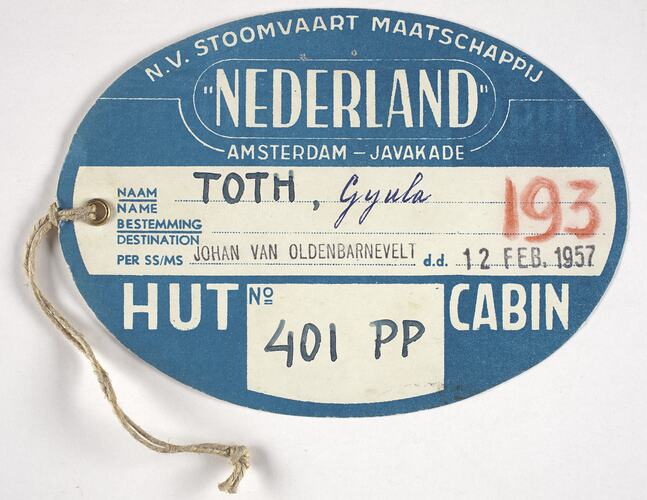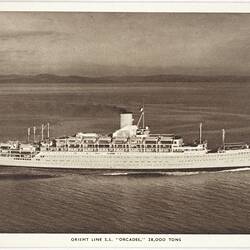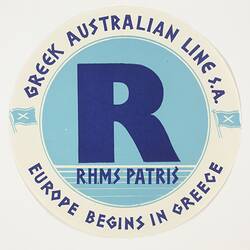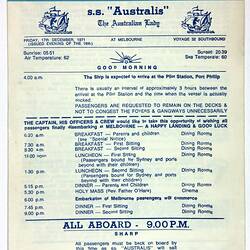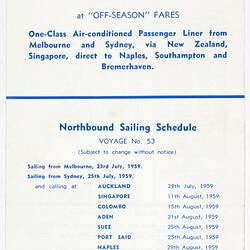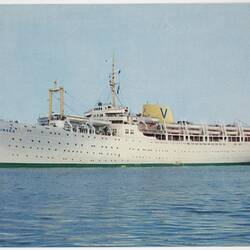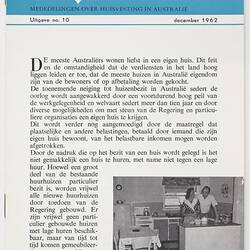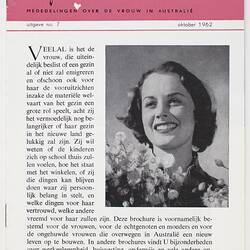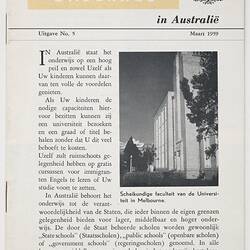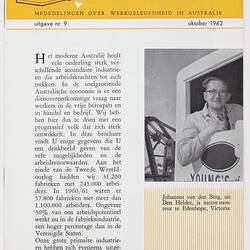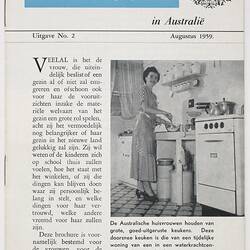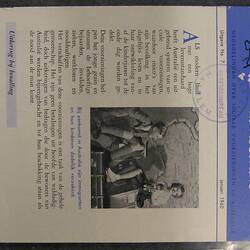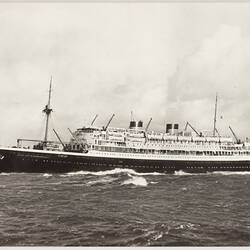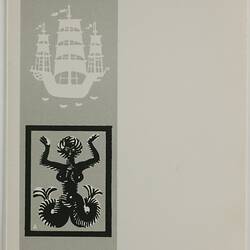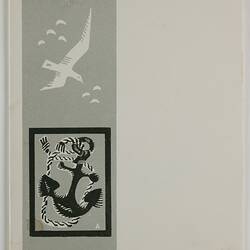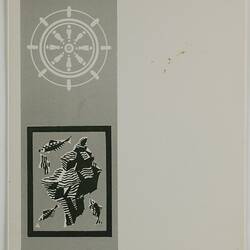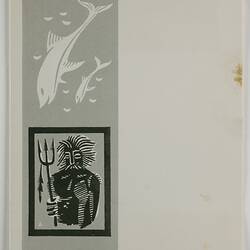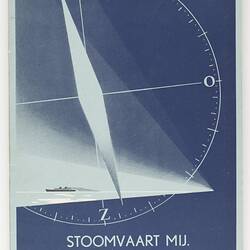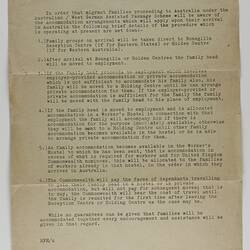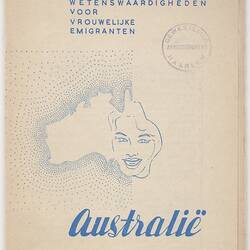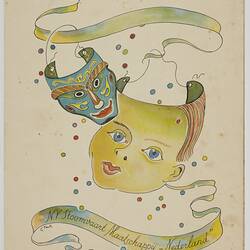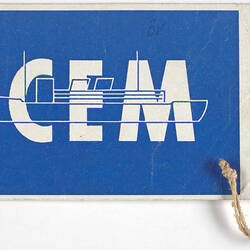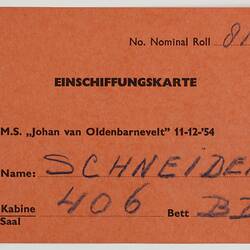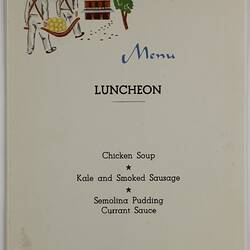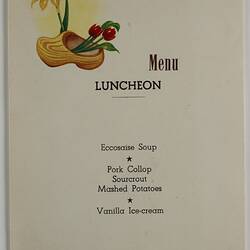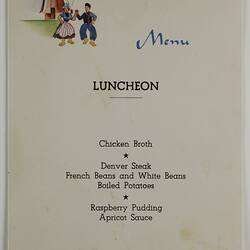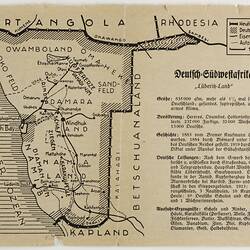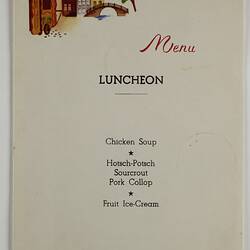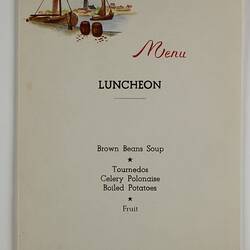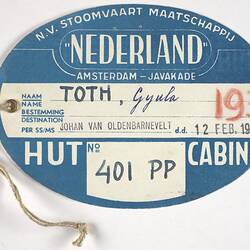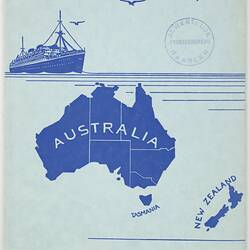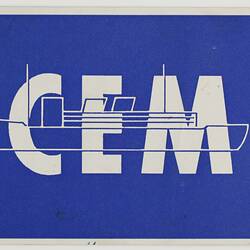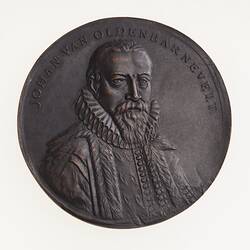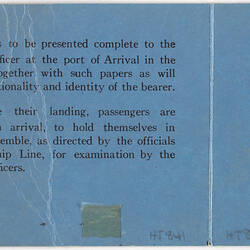Summary
History of the post World War II Migrant Ship Johan Van Oldenbarnevelt. She became an important and well-known part of Dutch-Australian immigration history, making a total of 44 voyages to Melbourne between 1950-1963.
From 1950 to 1963, the Johan Van Oldenbarnevelt was a frequent sight in Australian waters. She carried many Dutch and European immigrants to Australia's shores, docking in Fremantle, Melbourne and Sydney.
Many passengers were heading to Australia to escape the aftermath of World War II, others headed to Australia with a sense of adventure - hoping to begin a new way of life. Whatever the reason, mention of the journey on the Johan Van Oldenbarnevelt evokes memories that many of its passengers will never forget.
Facts at a Glance
Dimensions: 608 x 74 ft (185.4 x 22.8 m)
Registered Tonnage: 19,787 tons gross
Service Speed: 17 knots Propulsion: Sulzer diesels / twin screws
Shipping Line: Nederland Line
History of the Ship
The Johan Van Oldenbarnevelt was named in honour of a sixteenth century Dutch statesman who was executed after being accused of treason by his political enemies. The Johan Van Oldenbarnevelt was the largest diesel-powered ship ever constructed in Holland when she was launched on 3 August 1929. At that time, she provided accommodation for 770 passengers (in four classes) and 360 crew members.
Despite an unfortunate beginning - colliding with a Dutch steamer on her maiden voyage - the Johan Van Oldenbarnevelt eventually became popular among Dutch immigrants to Australia. The pride of the Dutch merchant fleet, she was a real luxury liner specifically built to serve the trade route between Holland and Indonesia (then known as the Dutch East Indies). But as the Second World War dawned, she was commanded by the British, and made several journeys to and from Australia, carrying troops to war. It was at this stage in her life that she acquired the nickname of the JVO, a popular title - particularly amongst English speakers.
Immigrant Ship to Australia
In October 1945, the JVO was refurbished and returned briefly to her previous route between Holland and Indonesia, before joining the Australian migrant trade in 1950. With Indonesian independence declared in 1947 (leading to a decline in Dutch nationals travelling to and from the former colony) and Australian immigration at a high, the Nederland Line offered the JVO to the Dutch government for charter.
She became an important and well-known part of Dutch-Australian immigration history, making a total of 44 voyages to Melbourne. Her first immigrant journey departed Amsterdam on 5 September 1950, before arriving in Melbourne on 9 October. She made only two such trips before being refitted especially for the immigrant trade - increasing her accommodation to 1414 passenger berths in a single class - allowing her to carry almost twice as many as her original 770 passengers.
In August 1958, her immigrant charter ended and she was again refitted for travel on a round-the-world service.
Passenger Experiences of the Journey
The JVO carried thousands of Dutch migrants to Australia - all people with unique experiences and different stories. For many immigrants, the escape from war-torn Europe was a relief.
Anna Campen migrated from Holland in 1954:
' The JVO was wonderful, like a holiday, a real adventure. The crew were marvellous and helped organise a variety night. I had done some ballet and offered to perform to the Blue Danube, so a passenger sewed me a ballet costume from an old sheet.'.
Patricia Smit migrated from Holland in 1959:
'I celebrated my seventh birthday on board and remember the birthday cake arriving at mealtime complete with pineapple on the top.'.
The trip was not always smooth sailing, however, with bouts of illness common, particularly in 1952 and 1954.
Peter Geels migrated from Holland in 1952:
'Immediately upon arrival, I was transported to the Royal Children's Hospital in Melbourne, suffering from acute gastro which they were having trouble controlling on the ship.'.
Her Final Voyage
When her immigration travels came to an end, the JVO continued as a general passenger and cruise ship on Australian routes until 1963. She was then sold to Greek interests, renamed Lakonia and again refitted. Tragically, only eight months after her renovation, a fire - said to have started in one of her new beauty salons - engulfed the entire ship, causing the loss of 132 lives. The JVO subsequently sunk while under tow back to port.
References:
Baty, S. 1984. Ships That Passed -The Glorious Era of Travel to Australia and New Zealand. Reed Books Pty Ltd. Frenchs Forest.
Plowman, P. 1992. Emigrant Ships to Luxury Liners. New South Wales University Press.
Kensington. Stodden, K. 2003 (October). Appendix A - Tally of Voyages. Prepared for the Ship Reunion Lecture. Immigration Museum, Melbourne.
More Information
-
Keywords
-
Authors
-
Article types
